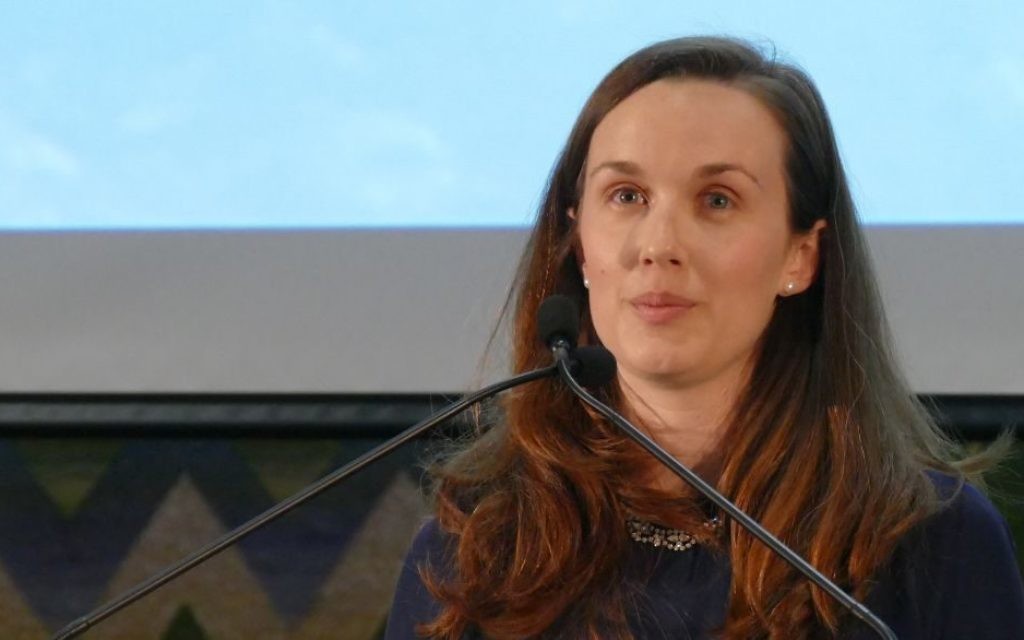Heroes Lead Communal Dip Into Mikvah Benefits
The second annual Mitzvah for the Mikvah celebrates representatives of 13 synagogues.

More than 200 people helped beautify the mitzvah of mikvah by celebrating 13 synagogues’ community heroes Thursday, May 3.
The second annual Mitzvah for the Mikvah, held at Congregation B’nai Torah to benefit the Metro Atlanta Community Mikvah, was built on the three pillars that Rabbi Simon the Just some 2,300 years ago said would sustain the world: Torah study, avodah (worship and ritual) and gemilut chasadim (acts of kindness).
B’nai Torah Rabbi Joshua Heller said MACoM, although it might seem “very Leviticus-y,” is not just a place of ritual. It incorporates study and kindness as well.
Get The AJT Newsletter by email and never miss our top stories Free Sign Up

“Each piece of our lives has the seed, has the capacity, to form and to create an entire world. Every good deed has within it the seeds of every good deed,” said Rabbi Heller, who helped launch MACoM as an independent, pluralistic community organization more than three years ago and who Rabbi Loren Filson Lapidus said “will always be the pool boy of MACoM.”
“The mikvah has within it the seeds of all that Judaism has to offer,” Rabbi Heller said.
Video tributes at the dinner broke the community heroes into groups based on the three pillars: Devorah Lowenstein, Linda Bressler, Annette Marcus and Rebecca Stapel-Wax, Torah; Karen Baron, Bonnie and Alan Silverman, Jeff Willard, and Lori Carling, worship and ritual; and Samra and Ronald Robbins, Ronnie van Gelder, Arlene Exelbert, Robin Mayer, and Gillian Gansler, acts of kindness.
“I hope these heroes inspire all of you to get involved in the Jewish community or elsewhere to do your part,” emcee Brian Mand said.
While the purpose of the evening was fundraising, the spiritual and emotional benefits of the mikvah were highlighted.

Benefactor Ramie Tritt, for example, said immersion is a special spiritual experience, and each plate at the dinner had a written testimonial about the power of immersion.
Lorna Sherwinter said she first visited MACoM a year earlier, three weeks before she was due to give birth after fertility struggles. Mikvah hero Lowenstein suggested she go to the mikvah near the end of a difficult pregnancy, and Sherwinter said that floating alone in a quiet pool of warm water sounded appealing.

“I went to the mikvah looking for temporary relief, and what I came away with was a permanent fixture of my self-care routine,” she said, adding that she sees that mikvah visit as her first memory of her son, Adam.
“The mikvah welcomes us as we are. It doesn’t ask us to change, but rather it asks us to remove the things we change about ourselves in order to fit in this world around us: our clothes, our makeup, our nail polish,” Sherwinter said. “The mikvah takes us back to our purest form and encourages us to experience the privilege of human existence, no matter what physical or emotional stress lingers for us outside of the pool. That is what draws me back time and time again.”







comments